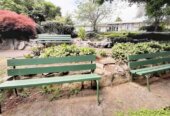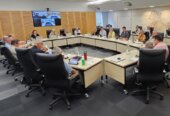Health providers say they are at capacity dealing with a combination of seasonal illnesses and Covid, but the use of technology and good health advice can alleviate this.

Te Awamutu Medical Centre stopped taking walk-in patients last month.
“It is not really about Covid now, it is about the total load that is on the health system,” said Te Awamutu Medical general manager Wayne Lim.
“When you add together flu bugs, gastric bugs, colds, and Covid, then all of a sudden you have got a pretty extraordinary combination of sicknesses.”
This increase of illnesses is reflected in local schools. Last week, 150, or approximately a third of Te Awamutu Intermediate School’s roll of 500 were away sick.
“Our community is supporting us to keep as many staff and students as healthy as possible by keeping students who are sick, or only mildly so, away from school,” said principal Pip Mears.
Local providers Mahoe Med and Te Awamutu Medical Centre have both expressed how the ‘extremely high demand’ has impacted their services.
Mahoe Med, Waipā’s only accident and emergency centre, is experiencing four-hour delays for urgent care. And because of the demand, Te Awamutu Medical Centre has stopped their walk-in service all together.
Both are facing delays of days or weeks for general GP bookings.
“We are just trying to navigate that with limited resources and balance the complexity of respiratory illnesses in winter,” said Mahoe Med director, Dr Shivam Deo.
Both centres are recommending patients evaluate the urgency of their medical needs, before being seen.
“Instead of staying home and looking after themselves, we have a lot of people who are coming in to visit the doctor quite early,” said Lim.
“If people could self-manage a bit more, then that would help make room for them if they get more seriously ill.”
He said unless it’s urgent, for most viruses, such as the flu or cold, there is not much a doctor can do to help, except prescribe over the counter medication like paracetamol or lozenges, which can only relive the symptoms.
“The body actually needs to fight that,” he said.
“There is good health advice out there, and we encourage people to make us of it. Part of that advice is to stay home and look after yourself.”
He recommends patients refer to the Health Navigator website for further advice, but the number one rule, unless its urgent, is to stay at home and rest.
Dr Deo said the use of technology can enable patients to interact with health professionals in a slightly different way, but still achieve the health outcomes they might want. Typically, patients can request routine prescriptions online.
He said patients can help reduce the demand on health providers by booking for phone consults if they can, or by communicating with their doctor using services like Manage My Health.
“Here in the Waipā region, in terms of acute care, it is just us really. I think ultimately our goal is to help our community and do the best that we can,” said Deo.
“At the end of the day, we are all humans too, not machines. It is not just a short-term thing, Covid has been with us for a couple of years now. People are feeling burnt out. But overall, the community has been really understanding of that. “








